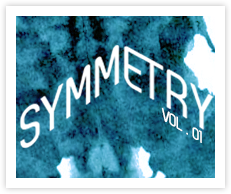

Meeting Mulcair
Josh-Robin Young // April 16, 2012

In late March of this year, Jim Flaherty, the Harper Government’s Minister of Finance, revealed Canada’s 2012 budget. The budget was in many ways much less drastic than many had believed it would be, and included expected cuts to jobs in the public service and changes to the eligibility of Old Age Security.
Apart from the actual contents of the budget, the event was important for another reason. It marked a crossroads of sorts for the three main political parties as they attempted to gain and/or sustain support. This fact was demonstrated during a series of interviews in which CBC’s Evan Solomon interviewed NDP leader Thomas Mulcair, Liberal interim leader Bob Rae, and the author of the budget, Jim Flaherty. Each gave their reaction to (or in Flaherty’s case, reasoning behind) the details of the budget. The interviews allowed each politician to give their opinion in a debate-like format where sound bites, quick wit, and clear messaging gained presence over real policy alternatives.
More than any other party, the NDP had the most to gain from this event. With leader Thomas Mulcair being elected just a week prior, replacing the widely popular Jack Layton, Canadians had not yet had a chance to “get to know” the new leader. It was a chance for him to make a good first impression and appeal to Canadian voters who had been unsure of the NDP in the past.
By all accounts, Mulcair succeeded, standing head and shoulders above the other two interviewees, from a purely performance standpoint at least. Below I have listed the factors that comprised his impressive political performance:
- Presentation- Former Liberal leader Stephan Dion showed us that presentation can make or break a campaign. Mulcair has the advantage of a deep voice, strong facial features and a charming smile, something that automatically endears him to observers.
- Making a point- Unlike fellow interviewee and leader Bob Rae (who came off seeming wishy-washy), Mulcair made good, direct points stating them clearly and speaking them well.
- Building a credible profile- Mulcair subtly states his credential throughout the interview alluding to both his time as NDP finance critic and as Quebec’s Environment Minister.
- Setting the tone of the conversation- After the first question was asked (“What’s your overall impression [of the budget]?”) Mulcair immediately took a shot at the Conservatives by saying, “I was the NDP finance critic for the past three budgets so I’m used to their sleight of hand.” This kind political jab serves to set the tone for the interview, but by referring to them in this way the comment can also subtly negatively affect the image viewers have of the Conservatives.
- Agreeing, while disagreeing- Any seasoned political observer will tell you that a big faux pas in politics is agreeing with your opponents. Mulcair is able to deftly avoid this while still retaining the integrity of his opinions. A good example of this was when he admitted that you can complete an environmental assessment in less than two years (referring to the cap the Conservatives put in place). However, he quickly specifies that this is only possible if the proper resources are invested into the program, something that is not happening with the current government.
- Dramatization and Imagery- By using certain statements Mulcair was able to make many of the budget’s details seem drastic and frightening. An example of this is when Mulcair warns that the Conservatives are attacking the public service with a “rusty machete”.
- Memorable mantra- Since he was chosen leader, and throughout the interview, Mulcair has repeated the mantra “they are leaving a massive economic, ecological and social debt” when referring to the impact the Harper Government is having on the long-term future of Canada. This is effective in the same way that slogans are effective in marketing; it attaches an idea to a catchy phrase that people will remember in order to change public opinion.
- Quick wit- Mulcair’s wit was on display as the interviewer asked him whether he agreed with the choice to remove the penny from circulation. Mulcair responded that he thought it was a good idea, but that overall the budget is “penny-wise and pound-foolish”.
If this impressive political performance by the NDP’s new leader is any indication, Stephen Harper (a master political performer and strategist in his own right) may have finally met his match. The next election is still a long way off so any prediction now is little more than a glorified guess, but if Mulcair can keep this up I wouldn’t be surprised to see an NDP government take office for the first time in Canadian history before long.
Links to the three interviews have been included below:
Mucair- http://www.cbc.ca/video/#/News/Politics/1244504890/ID=2217031598
Flaherty- http://www.cbc.ca/video/#/News/Politics/1244504890/ID=2217035054
Rae- http://www.cbc.ca/video/#/News/Politics/1244504890/ID=2217040152
